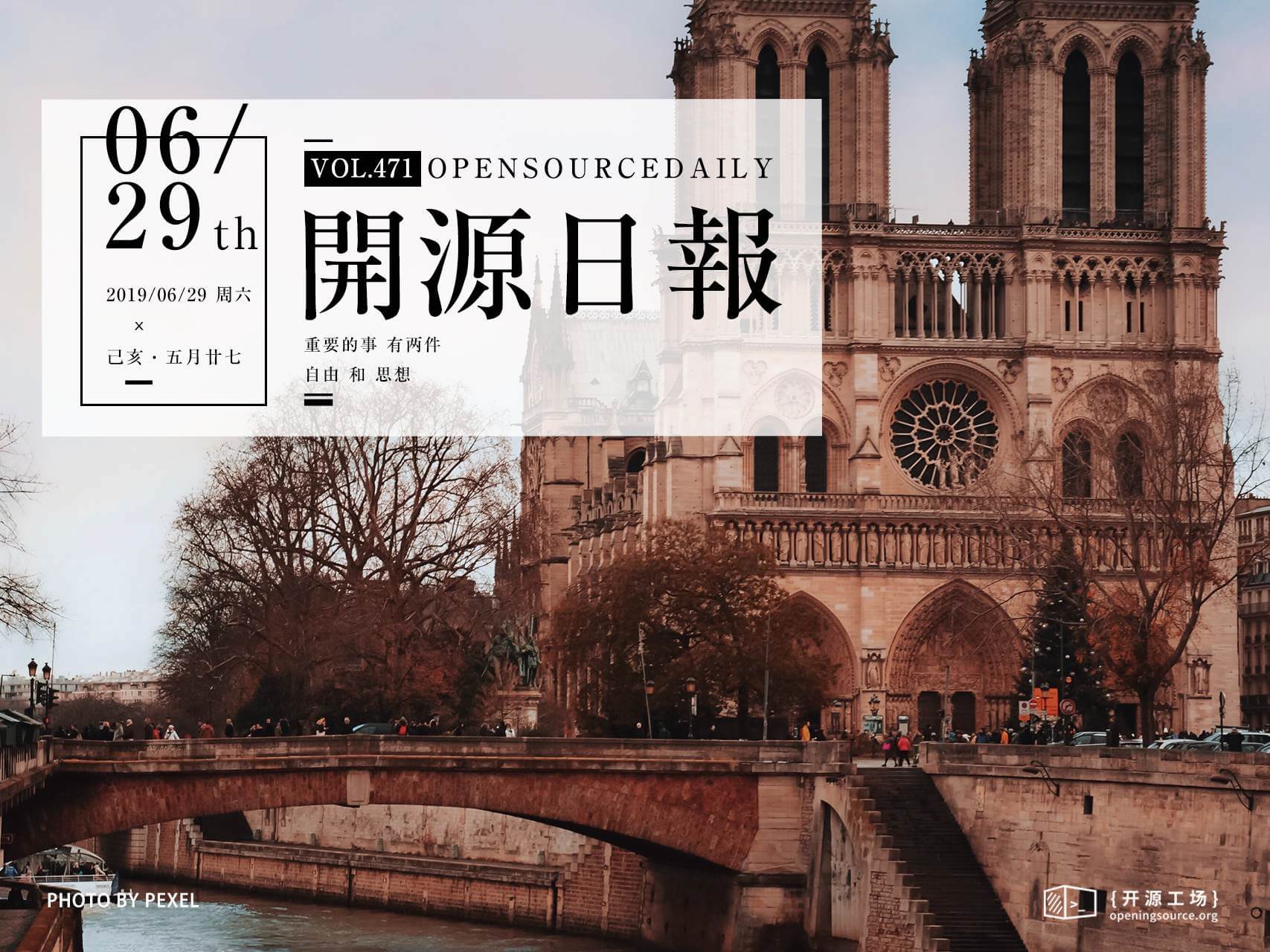今日推薦開源項目:《老規矩 markdownlint》
今日推薦英文原文:《What is a Linux user?》

今日推薦開源項目:《老規矩 markdownlint》傳送門:GitHub鏈接
推薦理由:Markdown 這玩意好用啊,簡單方便寫出來還好看。但是它很簡單的同時也讓寫出來的東西的長相變得很多樣化了,為了美觀方便易讀,就有必要遵守一些老規矩。這個項目就是基於 Node.js 的格式檢查器,能夠檢查 Markdown 文件是否遵守了項目中提到的那些規則——可以試著在書寫時就遵守這些規則,讓寫出來的文件讀起來更方便。
今日推薦英文原文:《What is a Linux user?》作者:Anderson Silva
原文鏈接:https://opensource.com/article/19/6/what-linux-user
推薦理由:如何定義一個 Linux 用戶
What is a Linux user?
The definition of who is a "Linux user" has grown to be a bigger tent, and it's a great change.
In only two years, the Linux kernel will be 30 years old. Think about that! Where were you in 1991? Were you even born? I was 13! Between 1991 and 1993 a few Linux distributions were created, and at least three of them—Slackware, Debian, and Red Hat–provided the backbone the Linux movement was built on.Getting a copy of a Linux distribution and installing and configuring it on a desktop or server was very different back then than today. It was hard! It was frustrating! It was an accomplishment if you got it running! We had to fight with incompatible hardware, configuration jumpers on devices, BIOS issues, and many other things. Even if the hardware was compatible, many times, you still had to compile the kernel, modules, and drivers to get them to work on your system.
If you were around during those days, you are probably nodding your head. Some readers might even call them the "good old days," because choosing to use Linux meant you had to learn about operating systems, computer architecture, system administration, networking, and even programming, just to keep the OS functioning. I am not one of them though: Linux being a regular part of everyone's technology experience is one of the most amazing changes in our industry!
Almost 30 years later, Linux has gone far beyond the desktop and server. You will find Linux in automobiles, airplanes, appliances, smartphones… virtually everywhere! You can even purchase laptops, desktops, and servers with Linux preinstalled. If you consider cloud computing, where corporations and even individuals can deploy Linux virtual machines with the click of a button, it's clear how widespread the availability of Linux has become.
With all that in mind, my question for you is: How do you define a "Linux user" today?
If you buy your parent or grandparent a Linux laptop from System76 or Dell, log them into their social media and email, and tell them to click "update system" every so often, they are now a Linux user. If you did the same with a Windows or MacOS machine, they would be Windows or MacOS users. It's incredible to me that, unlike the '90s, Linux is now a place for anyone and everyone to compute.
In many ways, this is due to the web browser becoming the "killer app" on the desktop computer. Now, many users don't care what operating system they are using as long as they can get to their app or service.
How many people do you know who use their phone, desktop, or laptop regularly but can't manage files, directories, and drivers on their systems? How many can't install a binary that isn't attached to an "app store" of some sort? How about compiling an application from scratch?! For me, it's almost no one. That's the beauty of open source software maturing along with an ecosystem that cares about accessibility.
Today's Linux user is not required to know, study, or even look up information as the Linux user of the '90s or early 2000s did, and that's not a bad thing. The old imagery of Linux being exclusively for bearded men is long gone, and I say good riddance.
There will always be room for a Linux user who is interested, curious, fascinated about computers, operating systems, and the idea of creating, using, and collaborating on free software. There is just as much room for creative open source contributors on Windows and MacOS these days as well. Today, being a Linux user is being anyone with a Linux system. And that's a wonderful thing.
The change to what it means to be a Linux user
When I started with Linux, being a user meant knowing how to the operating system functioned in every way, shape, and form. Linux has matured in a way that allows the definition of "Linux users" to encompass a much broader world of possibility and the people who inhabit it. It may be obvious to say, but it is important to say clearly: anyone who uses Linux is an equal Linux user.下載開源日報APP:https://openingsource.org/2579/
加入我們:https://openingsource.org/about/join/
關注我們:https://openingsource.org/about/love/
